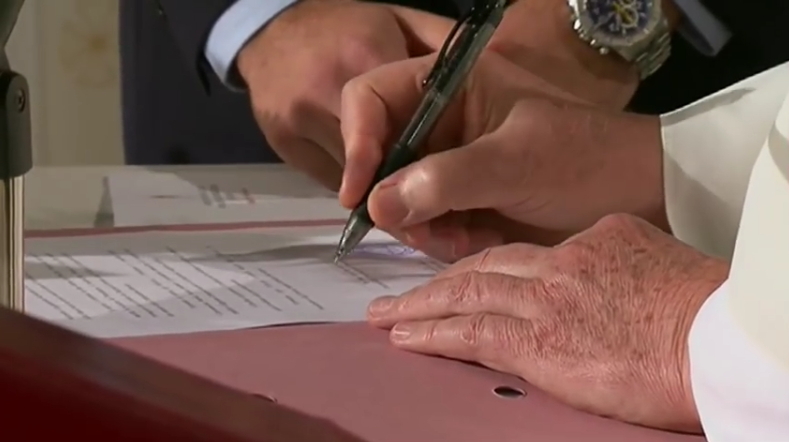
16 Nov 2017 | Focolare Worldwide
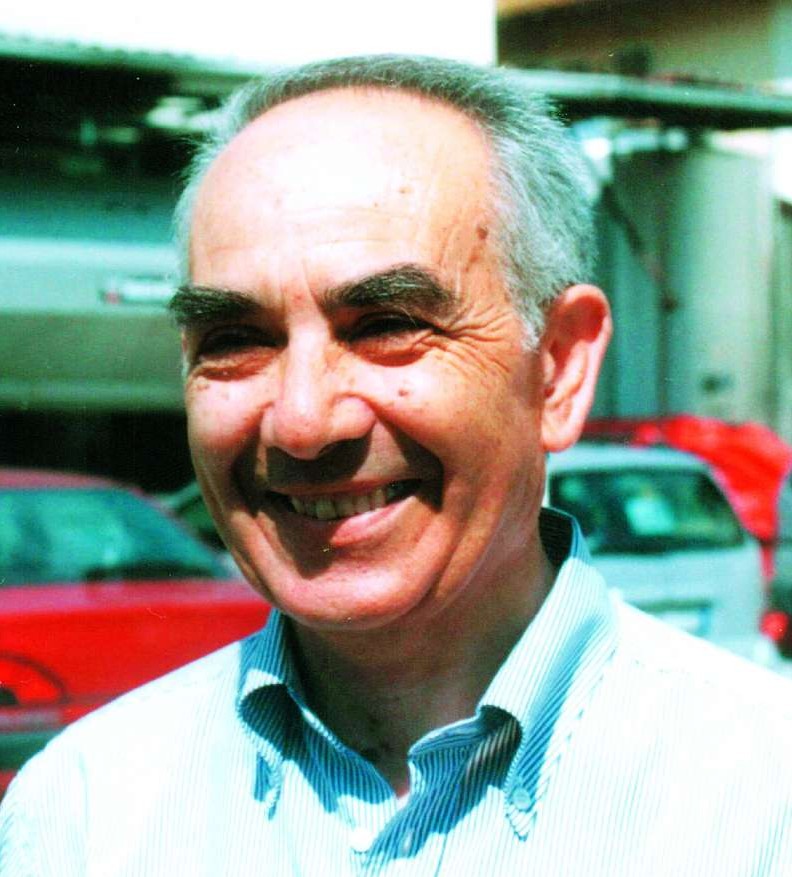 Domenico Mangano (1938-2001) answered God’s call “with readiness, loyalty, continuity, but above all, with an absolute freedom of conscience. He freely chose social commitment, which refined itself into a political commitment. When he met the Focolare Movement, he tried daily to improve his spiritual life by choosing to live “the holy journey” in unity with others. This experience rooted itself deeply in this active and resourceful citizen, committed and combative layman, fiery and pungent politician, true and faithful Christian, that was Domenico”. These words were said by the Hon.Tommaso Sorgi on the death of his “dear friend, a discreet and wise confidant, who was more than a brother”. For many years, Sorgi shared with him “the same yearning to unite heaven and earth and the same ardent passion to convey the provocative gospel message in a tough political situation. Above all, we lived together the birth of the Movement for Unity in Politics, that type of political experience which aims at building universal brotherhood and which was launched in parliament by Igino Giordani, a model for both of us”
Domenico Mangano (1938-2001) answered God’s call “with readiness, loyalty, continuity, but above all, with an absolute freedom of conscience. He freely chose social commitment, which refined itself into a political commitment. When he met the Focolare Movement, he tried daily to improve his spiritual life by choosing to live “the holy journey” in unity with others. This experience rooted itself deeply in this active and resourceful citizen, committed and combative layman, fiery and pungent politician, true and faithful Christian, that was Domenico”. These words were said by the Hon.Tommaso Sorgi on the death of his “dear friend, a discreet and wise confidant, who was more than a brother”. For many years, Sorgi shared with him “the same yearning to unite heaven and earth and the same ardent passion to convey the provocative gospel message in a tough political situation. Above all, we lived together the birth of the Movement for Unity in Politics, that type of political experience which aims at building universal brotherhood and which was launched in parliament by Igino Giordani, a model for both of us” 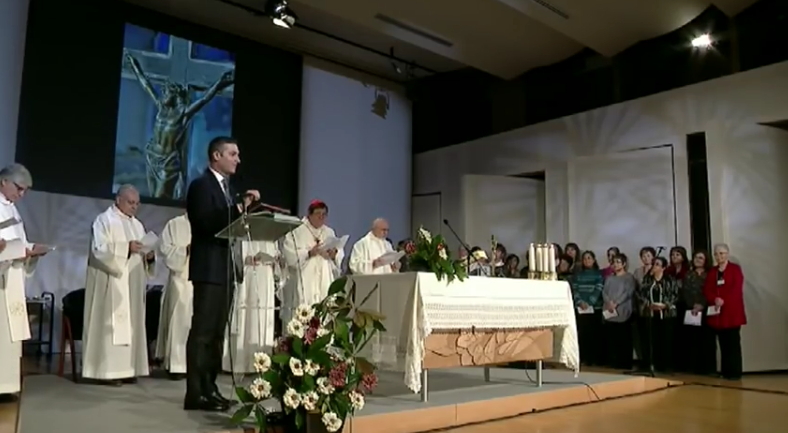 Domenico Mangano was born on February 22,1938 in Anzi, in the province of Potenza. In 1949 his family moved to Viterbo. In 1958, after finishing his high school studies, he managed to succeed in getting a job at the National Institute of Social Security in Pavia. He went to live there, and enrolled as a student-worker at the Faculty of Economics and Commerce. He met Maria Pia when he went back to Viterbo and they got married on August 24, 1966. They had three children: Paola (1968), Giuseppe (1970) and Maria Flora (1972). During these years, Domenico was fully committed to family life, work, university students, trade union, Catholic Action and studies. They were years in which he started his political activity as a public administrator in Viterbo. Domenico met the Focolare Movement in 1974 and together with Maria Pia adhered to its ideals. He was a Volunteer of God, a member of that branch of the Movement where lay people are radically committed to bring the light, that springs from Chiara Lubich’s charism, to all aspects of social life. He was determined “to walk in God‘s way” as indicated by Lubich, and he frequently wrote to her. Lubich remarked that he was a mystic.
Domenico Mangano was born on February 22,1938 in Anzi, in the province of Potenza. In 1949 his family moved to Viterbo. In 1958, after finishing his high school studies, he managed to succeed in getting a job at the National Institute of Social Security in Pavia. He went to live there, and enrolled as a student-worker at the Faculty of Economics and Commerce. He met Maria Pia when he went back to Viterbo and they got married on August 24, 1966. They had three children: Paola (1968), Giuseppe (1970) and Maria Flora (1972). During these years, Domenico was fully committed to family life, work, university students, trade union, Catholic Action and studies. They were years in which he started his political activity as a public administrator in Viterbo. Domenico met the Focolare Movement in 1974 and together with Maria Pia adhered to its ideals. He was a Volunteer of God, a member of that branch of the Movement where lay people are radically committed to bring the light, that springs from Chiara Lubich’s charism, to all aspects of social life. He was determined “to walk in God‘s way” as indicated by Lubich, and he frequently wrote to her. Lubich remarked that he was a mystic.  Domenico died at Viterbo on December 22, 2001. The year before when he was diagnosed with an incurable tumour, he knew it was time “to end the first long chapter of life by entrusting it to God’s merciful heart, and open another one that is completely new”. This was what he wrote to Chiara to share his situation. With the official Edict dated March 9, 2017, Mons. Marcello Semeraro, Bishop of Albano accepted the petition to allow the initialization of the Cause for the Beatification and Canonization of Domenico Mangano, presented by the postulator Waldery Hilgeman, and invited the ecclesial community to pronounce itself on the fame of holiness and signs of the new Servant of God. See also: Domenico Mangano
Domenico died at Viterbo on December 22, 2001. The year before when he was diagnosed with an incurable tumour, he knew it was time “to end the first long chapter of life by entrusting it to God’s merciful heart, and open another one that is completely new”. This was what he wrote to Chiara to share his situation. With the official Edict dated March 9, 2017, Mons. Marcello Semeraro, Bishop of Albano accepted the petition to allow the initialization of the Cause for the Beatification and Canonization of Domenico Mangano, presented by the postulator Waldery Hilgeman, and invited the ecclesial community to pronounce itself on the fame of holiness and signs of the new Servant of God. See also: Domenico Mangano
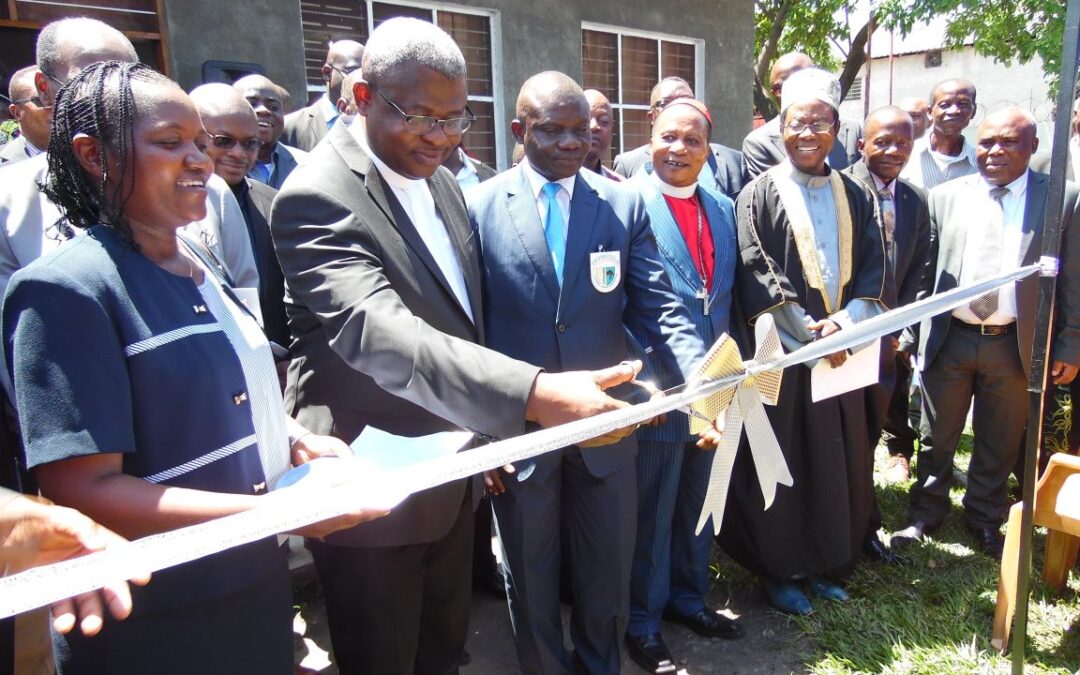
14 Nov 2017 | Focolare Worldwide
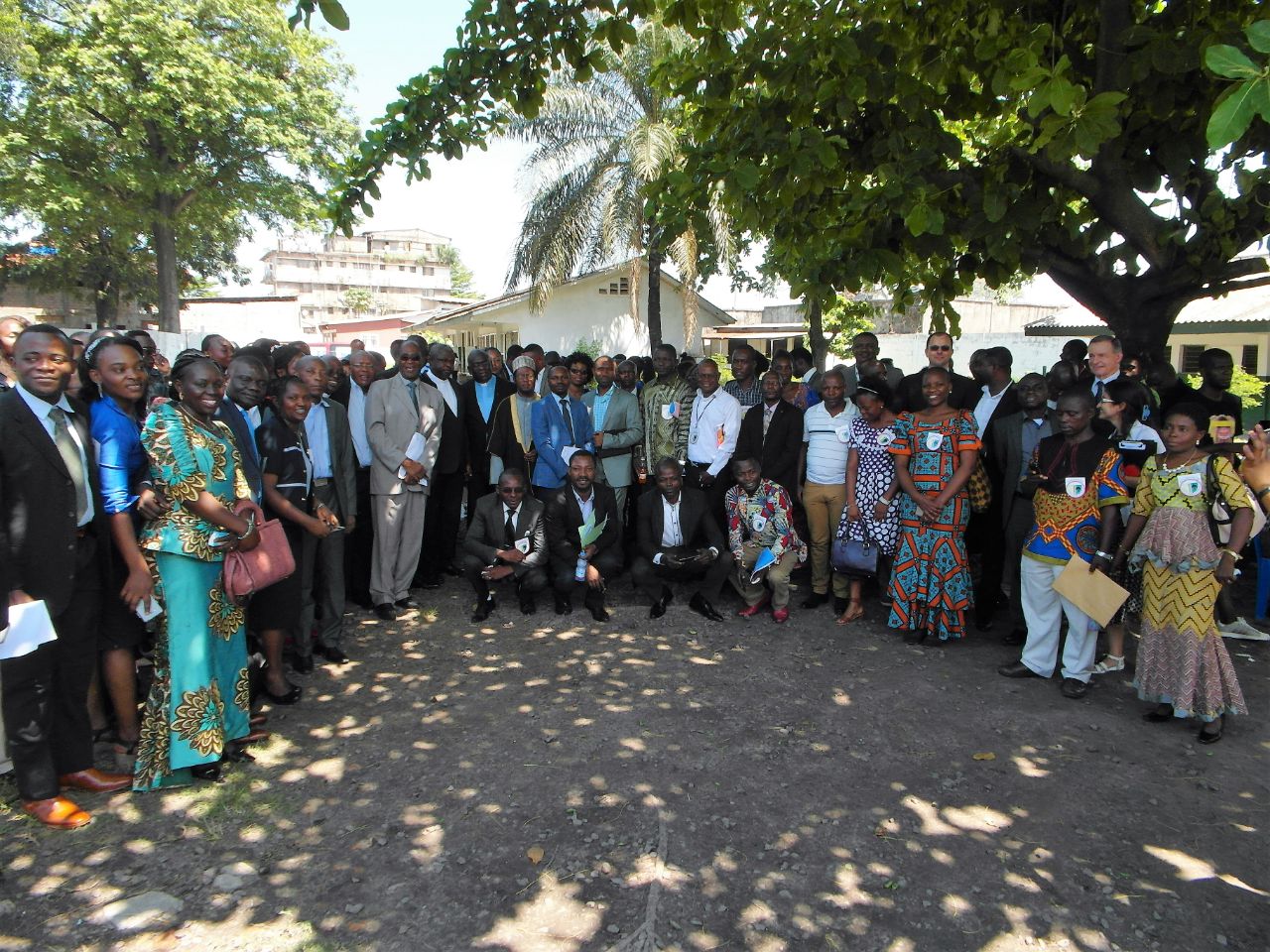 The political and social context is very dangerous and the per capita income is among the lowest in the world as pressure from international powers is being placed on the enormous natural resources of the region. But there is also the echo of the great African leaders from the twentieth century, from Nkruah to Senghor, from Lumumba to Nyerere that still resonates like a warning to leave the past behind and set great goals that “always seem impossible until done” (Mandela). It was in that context that on November 4th of last year the Ecoforleaders School of Higher Training in Communion Leadership was inaugurated in Kinshasa, Democratic Republic of the Congo in the presence of several political, diplomatic, academic ((among whom the Rectors of the Catholic University and the University of Mapon, and the two Emeritus Rectors of the Kasangani University and the National Pedagogy), Christian and Muslim religious leaders in an attempt to lift up a hope for openness in that African country. It all began with a group of African students who wondered how they could offer themselves for the building of a new Africa. Now they are working with the support of Sophia University Institute and the Focolare’s International Centre of the Movement for Unity in Politics.
The political and social context is very dangerous and the per capita income is among the lowest in the world as pressure from international powers is being placed on the enormous natural resources of the region. But there is also the echo of the great African leaders from the twentieth century, from Nkruah to Senghor, from Lumumba to Nyerere that still resonates like a warning to leave the past behind and set great goals that “always seem impossible until done” (Mandela). It was in that context that on November 4th of last year the Ecoforleaders School of Higher Training in Communion Leadership was inaugurated in Kinshasa, Democratic Republic of the Congo in the presence of several political, diplomatic, academic ((among whom the Rectors of the Catholic University and the University of Mapon, and the two Emeritus Rectors of the Kasangani University and the National Pedagogy), Christian and Muslim religious leaders in an attempt to lift up a hope for openness in that African country. It all began with a group of African students who wondered how they could offer themselves for the building of a new Africa. Now they are working with the support of Sophia University Institute and the Focolare’s International Centre of the Movement for Unity in Politics. 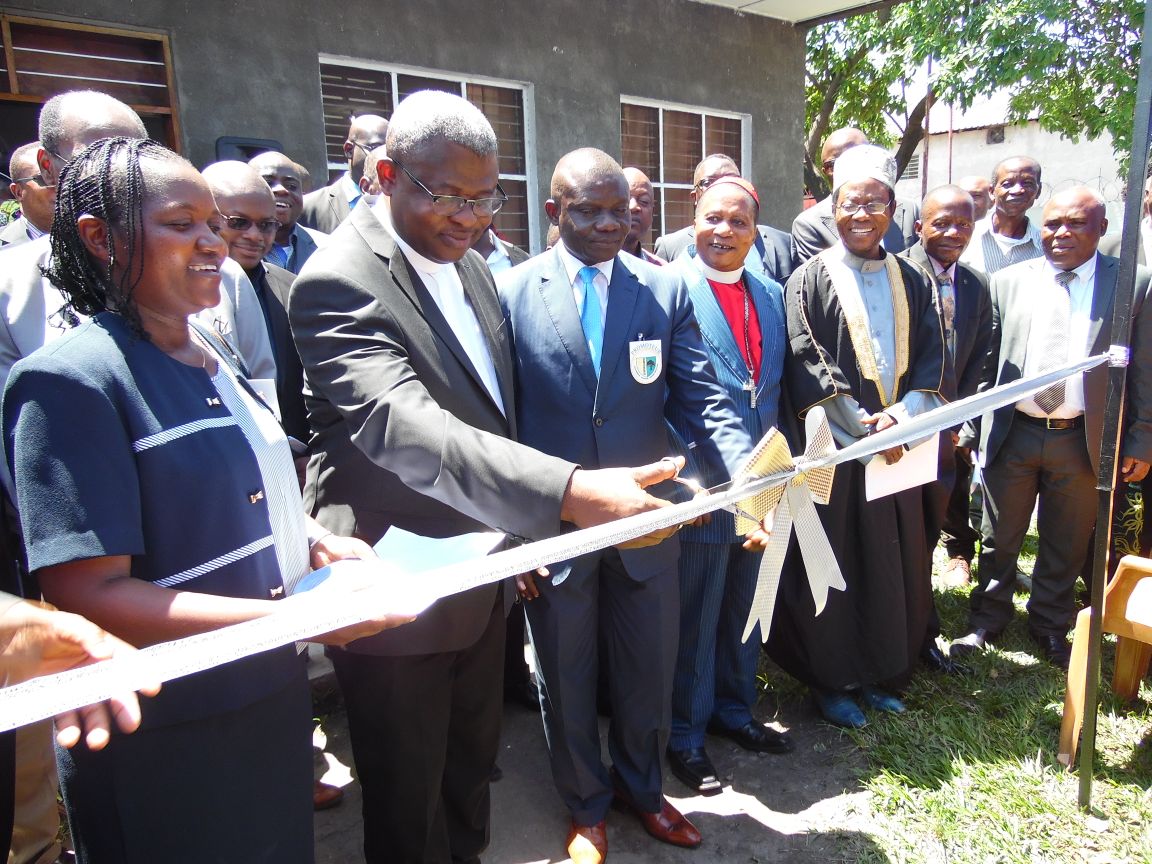 The Secretary of the Bishops Conference of the Democratic Republic of the Congo was invited to cut the ribbon, a man know for having conducted the dialogue between politicians of the majority and opposition leaders during the election controversy that linked the presidential election date to the next census. The Secretary remains a point of encounter between the parties until this day. Five students will begin courses given by a faculty that includes three university rectors and several tutors. This is not an isolated initiative, because the School is inserted into a broader project already presented at UNESCO, a project of formation in a leadership style inspired by universal brotherhood, which include the training of tutors and professors in Nairobi next January. The project is of interest to the whole East of Africa and will last for three years. Afterwards, it will be expanded to other regions of the continent. See also: News Repubblica Democratica del Congo
The Secretary of the Bishops Conference of the Democratic Republic of the Congo was invited to cut the ribbon, a man know for having conducted the dialogue between politicians of the majority and opposition leaders during the election controversy that linked the presidential election date to the next census. The Secretary remains a point of encounter between the parties until this day. Five students will begin courses given by a faculty that includes three university rectors and several tutors. This is not an isolated initiative, because the School is inserted into a broader project already presented at UNESCO, a project of formation in a leadership style inspired by universal brotherhood, which include the training of tutors and professors in Nairobi next January. The project is of interest to the whole East of Africa and will last for three years. Afterwards, it will be expanded to other regions of the continent. See also: News Repubblica Democratica del Congo
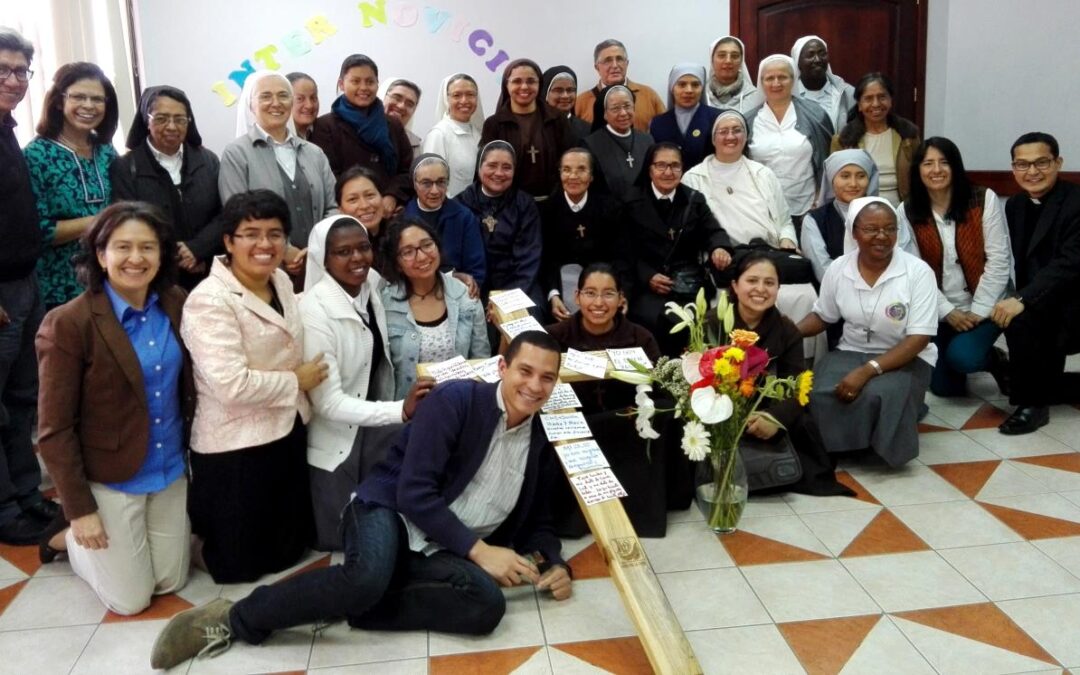
10 Nov 2017 | Focolare Worldwide
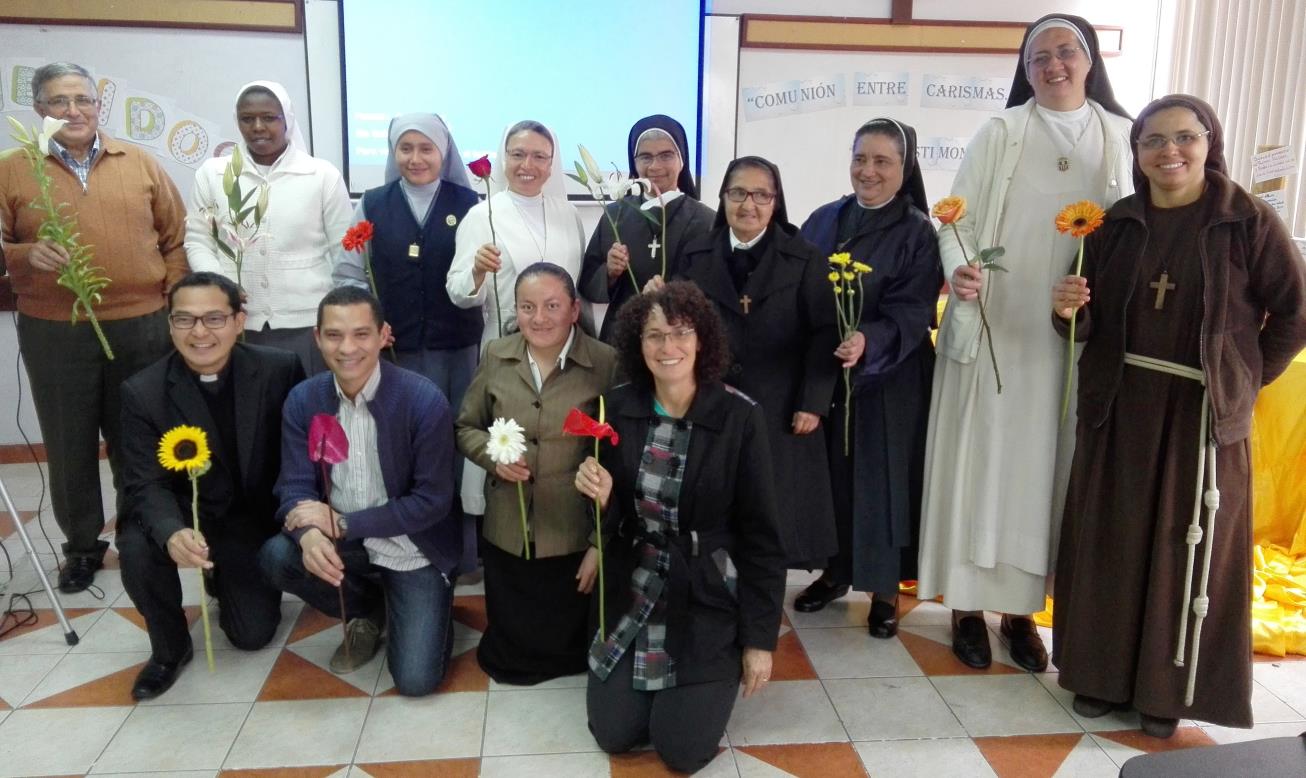 A magnificent garden of many flowers and colours – that is how the many farms appear in Ecuador that export their prized floral varieties worldwide. It is an image that Sr. Vanessa, a Franciscan youth missionary, used to introduce the spiritual retreat held 22 October in Quito, at the headquarters of the Ecuadorian Religious Conference. Sr. Vanessa had just recently finished a year at Casa Emmaus in Loppiano, the spirituality center for religious sisters who hope to go deeper into the Focolare charism. There in Ecuador she found no better example of the Church and its variety of charisms, with 27 consecrated sisters and one brother from 11 different congregations who had accepted the invitation. Utilizing a group dynamic, the young nun asked each participant to hang the word that each of the founders’ charisms was based on next to the crucifix there in the hall. This showed how the idea of each charism, brought about by the Spirit, is a new Christ unfolding throughout the centuries. Staying with her floral metaphor, each participant was given a flower that was different from the others, just as the charisms are different. They are different beauties that in communion, and in their common service of the Church, find themselves empowered and fulfilled.
A magnificent garden of many flowers and colours – that is how the many farms appear in Ecuador that export their prized floral varieties worldwide. It is an image that Sr. Vanessa, a Franciscan youth missionary, used to introduce the spiritual retreat held 22 October in Quito, at the headquarters of the Ecuadorian Religious Conference. Sr. Vanessa had just recently finished a year at Casa Emmaus in Loppiano, the spirituality center for religious sisters who hope to go deeper into the Focolare charism. There in Ecuador she found no better example of the Church and its variety of charisms, with 27 consecrated sisters and one brother from 11 different congregations who had accepted the invitation. Utilizing a group dynamic, the young nun asked each participant to hang the word that each of the founders’ charisms was based on next to the crucifix there in the hall. This showed how the idea of each charism, brought about by the Spirit, is a new Christ unfolding throughout the centuries. Staying with her floral metaphor, each participant was given a flower that was different from the others, just as the charisms are different. They are different beauties that in communion, and in their common service of the Church, find themselves empowered and fulfilled. 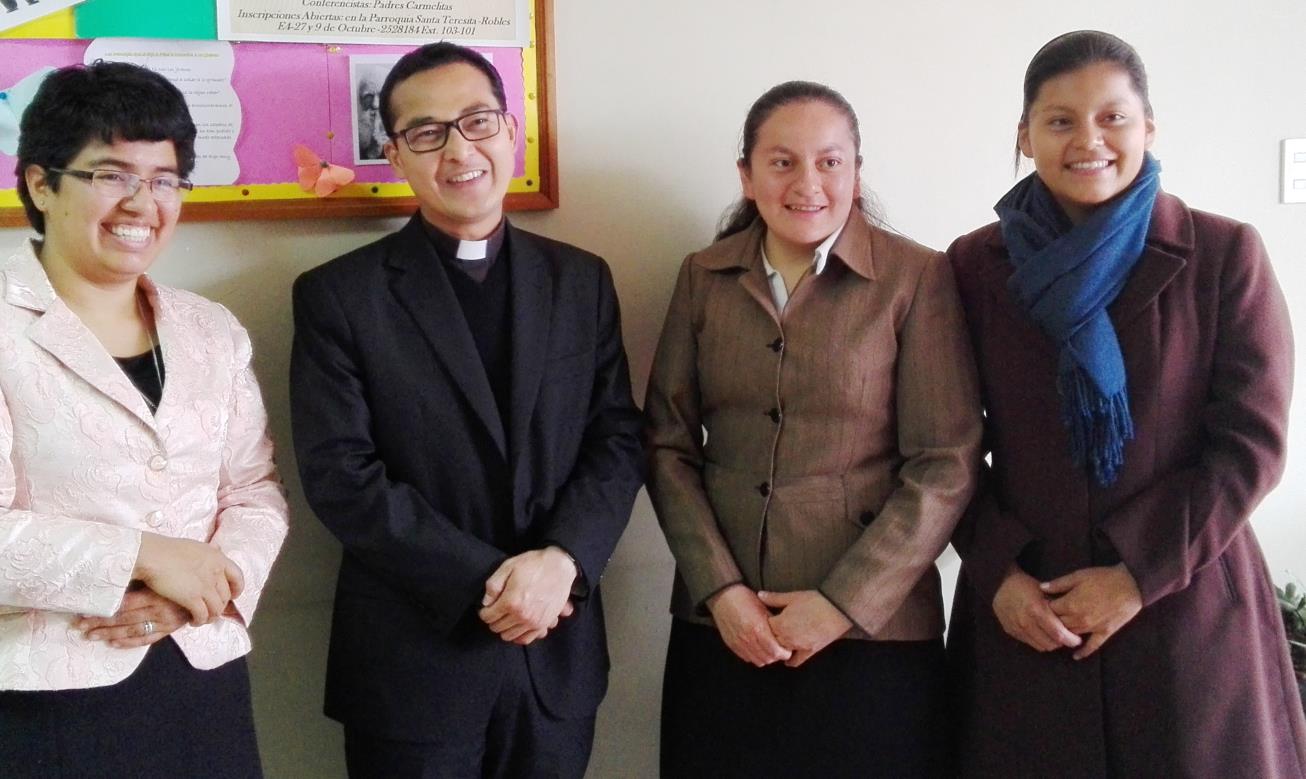 The program featured – in addition to talks that explored the value of communion between the new and ancient charisms in the Church and the truly different manner in which they developed or were nurtured – ample time for sharing. The Ecuadorian Religious Conference, in fact, had promoted the retreat with the title “Communion between charisms, a testimony of hope.” The occasion was the happy coincidence of the Mother Superior of the Little Servants of the Sacred Heart, Sr. Imelda Rizzato, visiting Ecuador. She has known about Focolare spirituality since her days in novitiate. She was able to share the impact that this spirituality had for her. Besides reinforcing her choice of vocation, it gave her a particular inclination to weave relationships of communion with those she met. In doing so, according to her superiors, she was living out the charism of her founder, Blessed Carlo Liviero, in an authentic way. In time the congregation gave her a number of responsibilities, to the point of asking her to be their highest guide. It is a role that she tries to carry out together with her sisters, with an openness and communion with other realities in the Church and other religious families. The goal is the “Church which goes forth” that the pope expects.
The program featured – in addition to talks that explored the value of communion between the new and ancient charisms in the Church and the truly different manner in which they developed or were nurtured – ample time for sharing. The Ecuadorian Religious Conference, in fact, had promoted the retreat with the title “Communion between charisms, a testimony of hope.” The occasion was the happy coincidence of the Mother Superior of the Little Servants of the Sacred Heart, Sr. Imelda Rizzato, visiting Ecuador. She has known about Focolare spirituality since her days in novitiate. She was able to share the impact that this spirituality had for her. Besides reinforcing her choice of vocation, it gave her a particular inclination to weave relationships of communion with those she met. In doing so, according to her superiors, she was living out the charism of her founder, Blessed Carlo Liviero, in an authentic way. In time the congregation gave her a number of responsibilities, to the point of asking her to be their highest guide. It is a role that she tries to carry out together with her sisters, with an openness and communion with other realities in the Church and other religious families. The goal is the “Church which goes forth” that the pope expects. 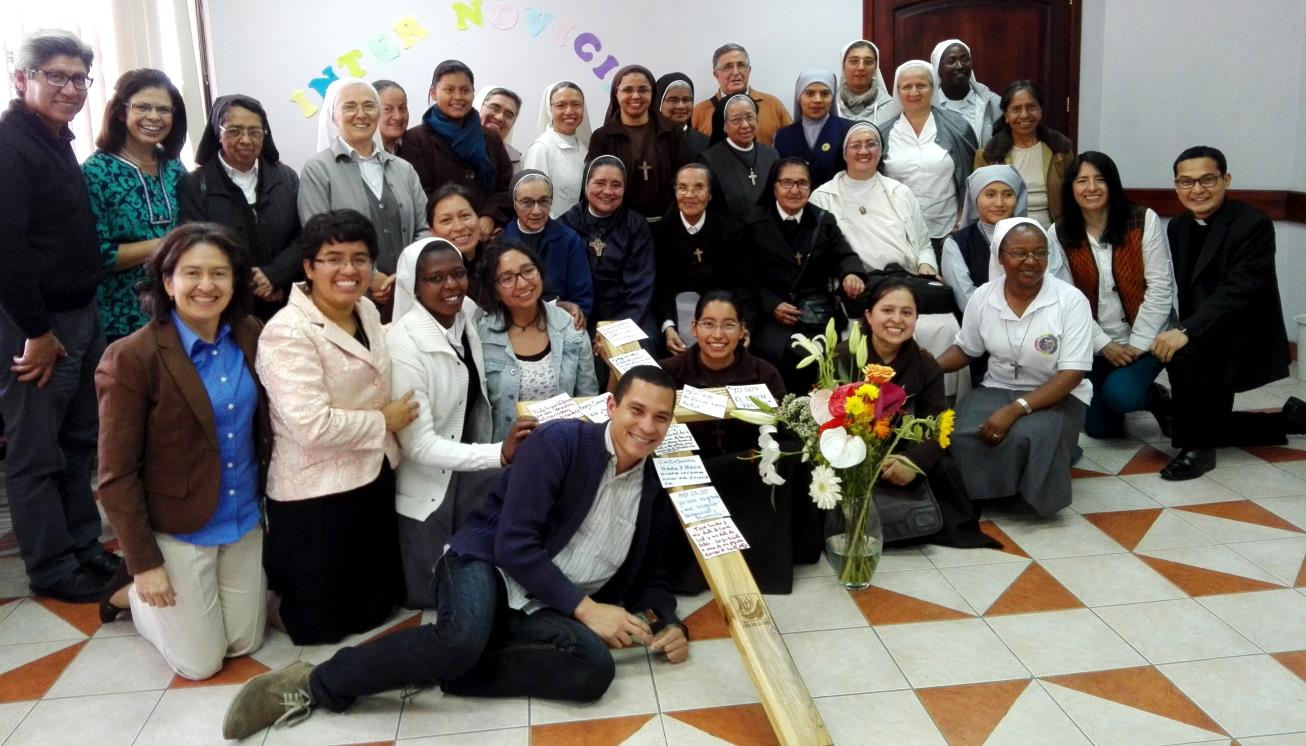 Sr Imelda and the other sisters who spoke were able to bear witness to how the charism of unity by no means conflicts with their individual charisms. On the contrary, it is a true help to accomplish what the Church expects of each charism, individually and in communion between them. News of the retreat even reached Apostolic Nunzio Monsignor Andrés Carrascosa, who not only allowed the sisters of the papal nunziature to participate, but sent his secretary to celebrate Mass. Staying for the entire meeting, the secretary said that it was a “true privilege to be there.” The day after the retreat some of the sisters wished to visit the Focolare center. They were putting down the foundations for their new path of unity between charisms in Ecuador, to open new horizons and give hope to the Church and the world.
Sr Imelda and the other sisters who spoke were able to bear witness to how the charism of unity by no means conflicts with their individual charisms. On the contrary, it is a true help to accomplish what the Church expects of each charism, individually and in communion between them. News of the retreat even reached Apostolic Nunzio Monsignor Andrés Carrascosa, who not only allowed the sisters of the papal nunziature to participate, but sent his secretary to celebrate Mass. Staying for the entire meeting, the secretary said that it was a “true privilege to be there.” The day after the retreat some of the sisters wished to visit the Focolare center. They were putting down the foundations for their new path of unity between charisms in Ecuador, to open new horizons and give hope to the Church and the world.
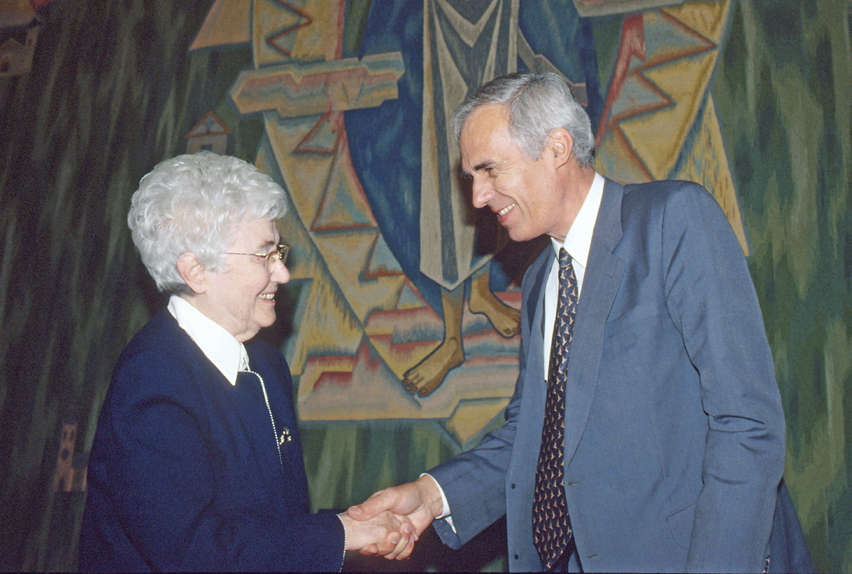
9 Nov 2017 | Focolare Worldwide
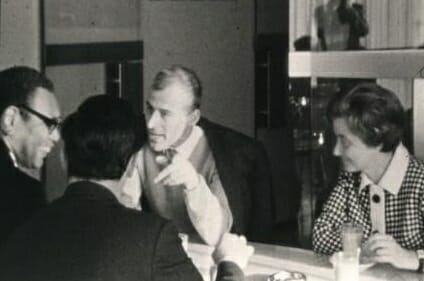
Geneva 1967: Chiara at the WCC with Philip Potter and Lukas Vischer

Geneva, October 2002: Chiara Lubich and Dr Konrad, then Secretary-General of WCC

 Domenico Mangano (1938-2001) answered God’s call “with readiness, loyalty, continuity, but above all, with an absolute freedom of conscience. He freely chose social commitment, which refined itself into a political commitment. When he met the Focolare Movement, he tried daily to improve his spiritual life by choosing to live “the holy journey” in unity with others. This experience rooted itself deeply in this active and resourceful citizen, committed and combative layman, fiery and pungent politician, true and faithful Christian, that was Domenico”. These words were said by the Hon.Tommaso Sorgi on the death of his “dear friend, a discreet and wise confidant, who was more than a brother”. For many years, Sorgi shared with him “the same yearning to unite heaven and earth and the same ardent passion to convey the provocative gospel message in a tough political situation. Above all, we lived together the birth of the Movement for Unity in Politics, that type of political experience which aims at building universal brotherhood and which was launched in parliament by Igino Giordani, a model for both of us”
Domenico Mangano (1938-2001) answered God’s call “with readiness, loyalty, continuity, but above all, with an absolute freedom of conscience. He freely chose social commitment, which refined itself into a political commitment. When he met the Focolare Movement, he tried daily to improve his spiritual life by choosing to live “the holy journey” in unity with others. This experience rooted itself deeply in this active and resourceful citizen, committed and combative layman, fiery and pungent politician, true and faithful Christian, that was Domenico”. These words were said by the Hon.Tommaso Sorgi on the death of his “dear friend, a discreet and wise confidant, who was more than a brother”. For many years, Sorgi shared with him “the same yearning to unite heaven and earth and the same ardent passion to convey the provocative gospel message in a tough political situation. Above all, we lived together the birth of the Movement for Unity in Politics, that type of political experience which aims at building universal brotherhood and which was launched in parliament by Igino Giordani, a model for both of us”  Domenico Mangano was born on February 22,1938 in Anzi, in the province of Potenza. In 1949 his family moved to Viterbo. In 1958, after finishing his high school studies, he managed to succeed in getting a job at the National Institute of Social Security in Pavia. He went to live there, and enrolled as a student-worker at the Faculty of Economics and Commerce. He met Maria Pia when he went back to Viterbo and they got married on August 24, 1966. They had three children: Paola (1968), Giuseppe (1970) and Maria Flora (1972). During these years, Domenico was fully committed to family life, work, university students, trade union, Catholic Action and studies. They were years in which he started his political activity as a public administrator in Viterbo. Domenico met the Focolare Movement in 1974 and together with Maria Pia adhered to its ideals. He was a Volunteer of God, a member of that branch of the Movement where lay people are radically committed to bring the light, that springs from Chiara Lubich’s charism, to all aspects of social life. He was determined “to walk in God‘s way” as indicated by Lubich, and he frequently wrote to her. Lubich remarked that he was a mystic.
Domenico Mangano was born on February 22,1938 in Anzi, in the province of Potenza. In 1949 his family moved to Viterbo. In 1958, after finishing his high school studies, he managed to succeed in getting a job at the National Institute of Social Security in Pavia. He went to live there, and enrolled as a student-worker at the Faculty of Economics and Commerce. He met Maria Pia when he went back to Viterbo and they got married on August 24, 1966. They had three children: Paola (1968), Giuseppe (1970) and Maria Flora (1972). During these years, Domenico was fully committed to family life, work, university students, trade union, Catholic Action and studies. They were years in which he started his political activity as a public administrator in Viterbo. Domenico met the Focolare Movement in 1974 and together with Maria Pia adhered to its ideals. He was a Volunteer of God, a member of that branch of the Movement where lay people are radically committed to bring the light, that springs from Chiara Lubich’s charism, to all aspects of social life. He was determined “to walk in God‘s way” as indicated by Lubich, and he frequently wrote to her. Lubich remarked that he was a mystic.  Domenico died at Viterbo on December 22, 2001. The year before when he was diagnosed with an incurable tumour, he knew it was time “to end the first long chapter of life by entrusting it to God’s merciful heart, and open another one that is completely new”. This was what he wrote to Chiara to share his situation. With the official Edict dated March 9, 2017, Mons. Marcello Semeraro, Bishop of Albano accepted the petition to allow the initialization of the Cause for the Beatification and Canonization of Domenico Mangano, presented by the postulator Waldery Hilgeman, and invited the ecclesial community to pronounce itself on the fame of holiness and signs of the new Servant of God. See also: Domenico Mangano
Domenico died at Viterbo on December 22, 2001. The year before when he was diagnosed with an incurable tumour, he knew it was time “to end the first long chapter of life by entrusting it to God’s merciful heart, and open another one that is completely new”. This was what he wrote to Chiara to share his situation. With the official Edict dated March 9, 2017, Mons. Marcello Semeraro, Bishop of Albano accepted the petition to allow the initialization of the Cause for the Beatification and Canonization of Domenico Mangano, presented by the postulator Waldery Hilgeman, and invited the ecclesial community to pronounce itself on the fame of holiness and signs of the new Servant of God. See also: Domenico Mangano 








